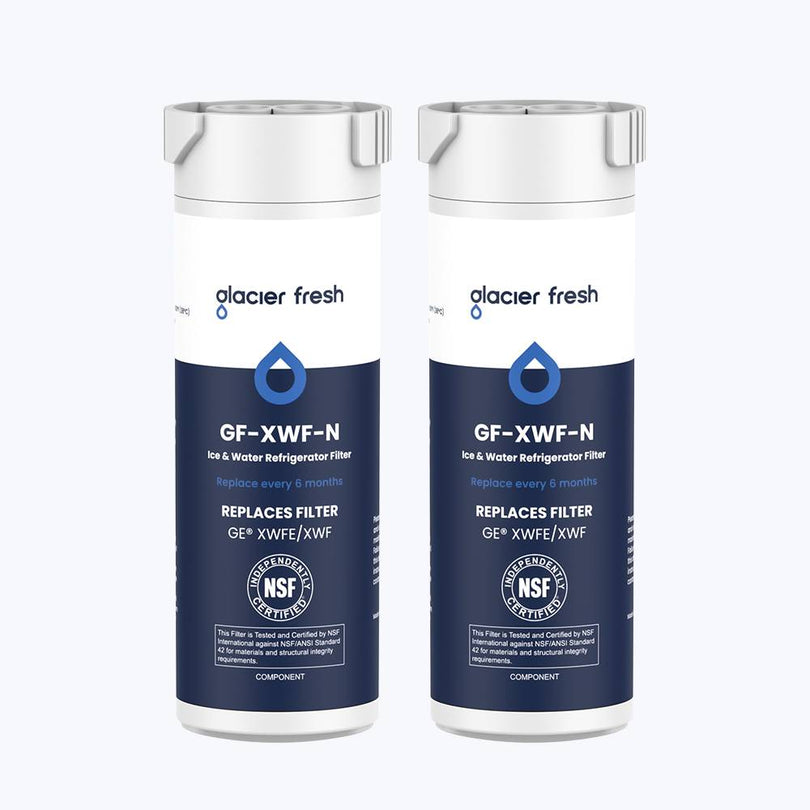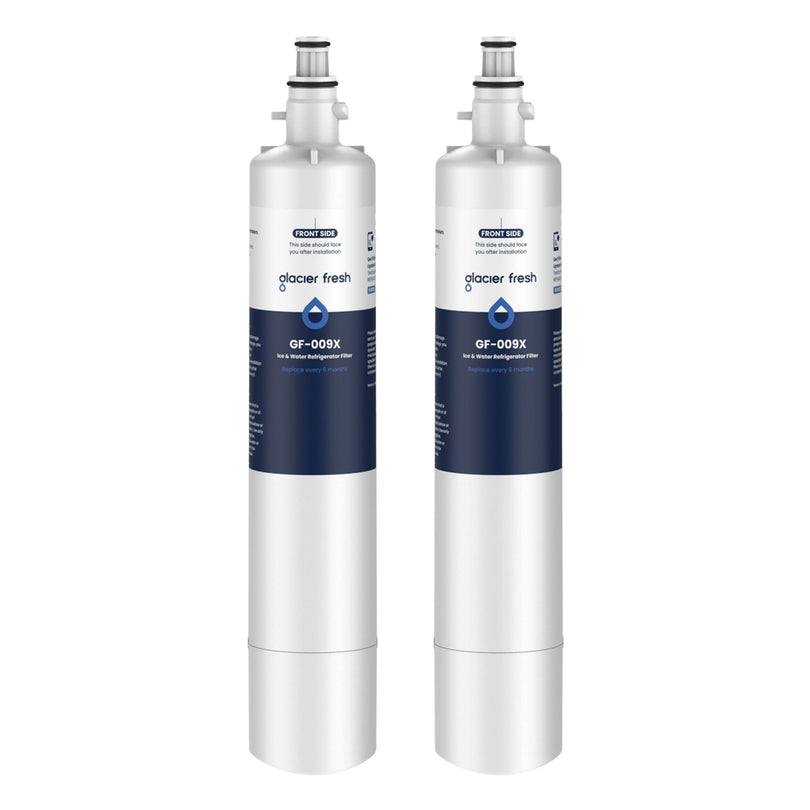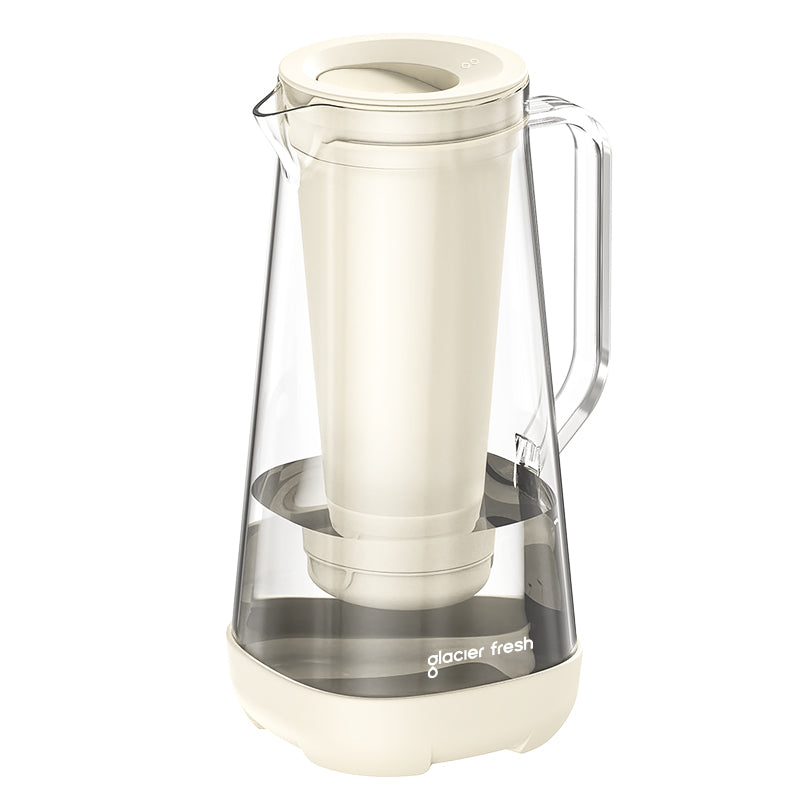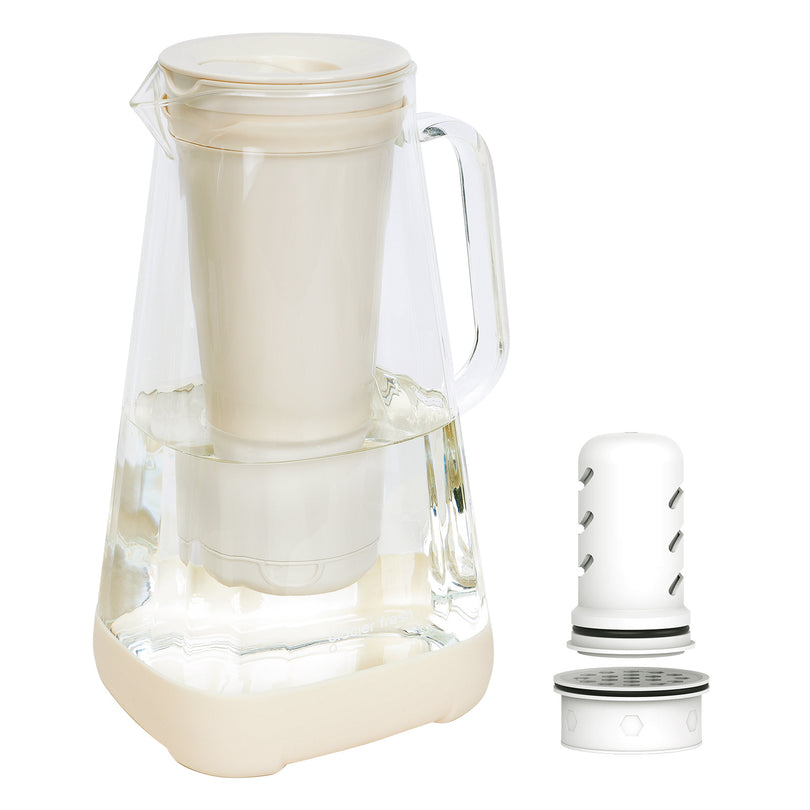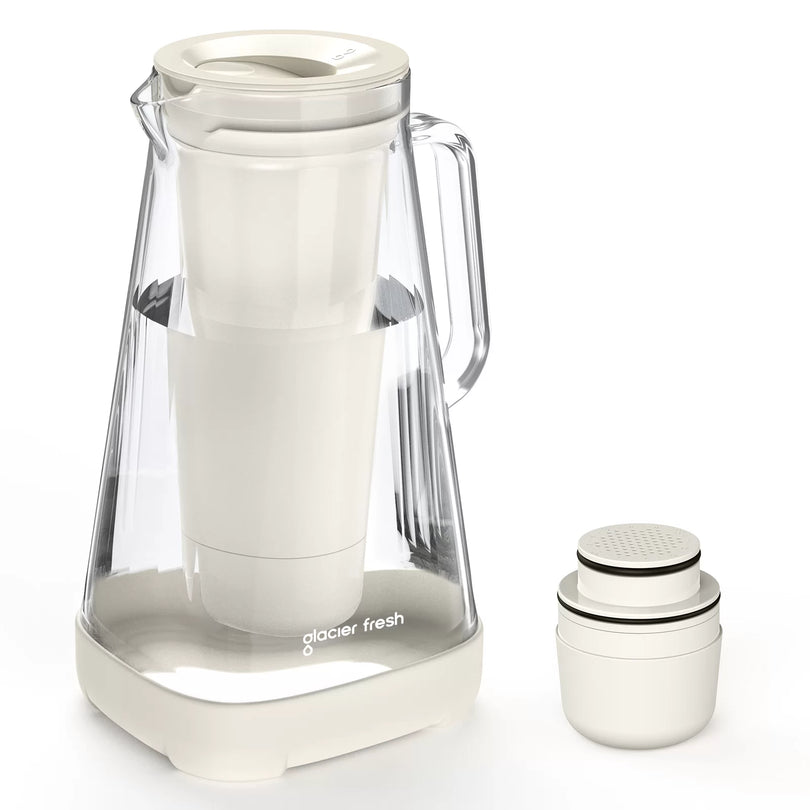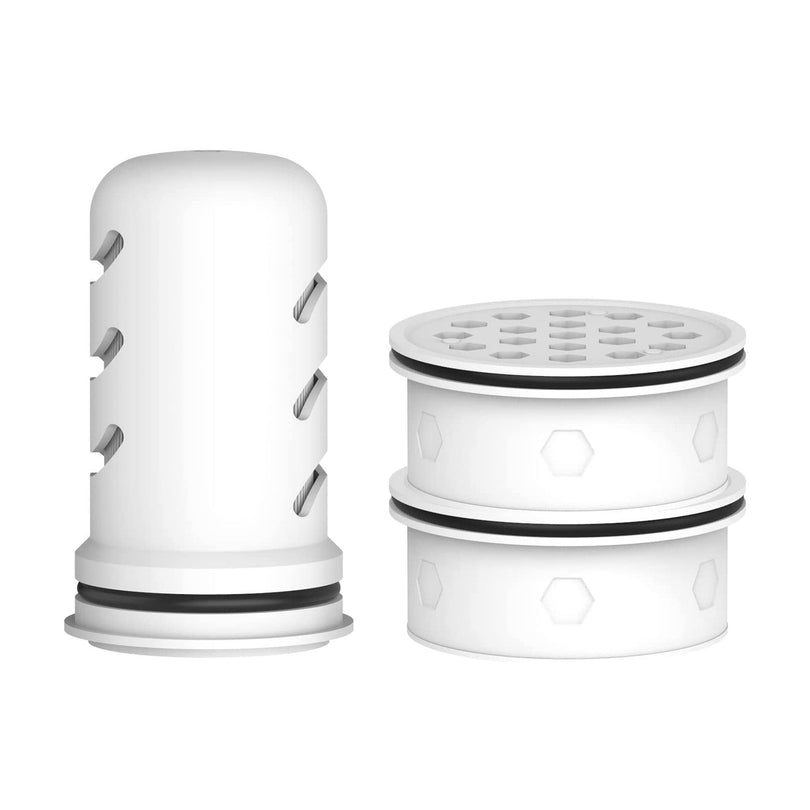Table of Contents:
Was ist strukturiertes Wasser?
Mögliche Vorteile von strukturiertem Wasser
Gesundheitsbezogene Angaben zu strukturiertem Wasser
Strukturiertes Wasser vs. normales Wasser: Was sind die Unterschiede?
Wissenschaftliche Perspektiven zum Strukturwasser
Abschluss
Sie haben wahrscheinlich schon von strukturiertem Wasser gehört, das aufgrund seiner einzigartigen Molekülanordnung als bahnbrechender Gesundheitsfaktor gilt. Es sorgt für eine bessere Flüssigkeitszufuhr und Zellabsorption und ist auf die Energie Ihres Körpers abgestimmt. Aber ist es ein Wundermittel oder nur ein Marketingtrick? Die wissenschaftliche Gemeinschaft ist nur teilweise überzeugt und beruft sich auf fehlende stichhaltige Beweise. Als Verbraucher ist es entscheidend, Neugier und kritischen Blick abzuwägen. Sind Sie bereit, dies weiter zu erforschen?
Was ist strukturiertes Wasser?

In der Welt der Gesundheit und des Wohlbefindens sind Sie wahrscheinlich schon einmal auf den Begriff „strukturiertes Wasser“ gestoßen. Dabei handelt es sich nicht um eine neumodische Modeerscheinung, sondern um ein Konzept mit jahrhundertealter Tradition. Antike Zivilisationen erkannten strukturierte Wasserquellen wie Quellen und Gletscherschmelze als besonders lebendig und lebenserhaltend an.
Aber was ist strukturiertes Wasser ? Im Wesentlichen handelt es sich um Wasser, dessen Moleküle in bestimmten, stabilen Anordnungen angeordnet sind. Diese Muster sind in normalem, unstrukturiertem Leitungswasser nicht zu sehen. Stellen Sie es sich wie einen Chor vor: Beide Wasserarten haben die gleichen Moleküle (oder Sänger), aber in strukturiertem Wasser harmonieren sie wunderbar.
Mögliche Vorteile von strukturiertem Wasser
Ein wichtiger Vorteil ist die verbesserte Flüssigkeitszufuhr. Man geht davon aus, dass die einzigartige Anordnung der Wassermoleküle in strukturiertem Wasser den Flüssigkeitszufuhrprozess verbessern kann. Sie haben gehört, wie wichtig Flüssigkeitszufuhr für Ihre allgemeine Gesundheit ist. Strukturiertes Wasser könnte eine effizientere Möglichkeit bieten, Ihren Körper mit Flüssigkeit zu versorgen.
Als nächstes kommt die Wasseraufbereitung. Strukturiertes Wasser kann sich selbst reinigen, Verunreinigungen reduzieren und die Reinheit maximieren. Das bedeutet, dass Sie beim Trinken von gesünderem, saubererem Wasser profitieren.
Schließlich wird strukturiertem Wasser ein positiver Effekt auf die Energieausrichtung zugeschrieben. Diese Art von Wasser soll sich mit den natürlichen Energieströmen des Körpers in Einklang bringen und so das allgemeine Wohlbefinden verbessern.
Zusammenfassend lässt sich sagen, dass strukturiertes Wasser eine verbesserte Flüssigkeitszufuhr, ein saubereres Trinkerlebnis und eine Steigerung der Energiebalance Ihres Körpers bieten kann. Bedenken Sie jedoch: Obwohl diese Vorteile vielversprechend klingen, werden sie noch wissenschaftlich untersucht.
Gesundheitsbezogene Angaben zu strukturiertem Wasser
Im Laufe der Zeit sind zahlreiche Gesundheitsversprechen rund um strukturiertes Wasser aufgetaucht. Sie haben wahrscheinlich schon von seiner angeblich besseren Hydratationswirkung gehört. Im Vergleich zu normalem Wasser hydratisiert strukturiertes Wasser den Körper deutlich effizienter. Dies liegt daran, dass seine einzigartige Molekularstruktur angeblich eine bessere Zellaufnahme ermöglicht, wodurch Dehydration vermieden und die Leistungsfähigkeit des Körpers auf Höchstniveau gehalten wird.
Enthusiasten bestätigen zudem die Fähigkeit von strukturiertem Wasser, das Energieniveau zu steigern. Dies liegt an seiner angeblichen Fähigkeit, Energie in Form von Biophotonen zu transportieren, Lichtenergieteilchen, die für biologische Prozesse unerlässlich sind. Das Trinken von strukturiertem Wasser soll die biophotonische Übertragung in Ihren Zellen verbessern, was zu einem höheren Energieniveau und einem verbesserten allgemeinen Wohlbefinden führt.
Obwohl diese gesundheitsbezogenen Aussagen vielversprechend klingen, ist es wichtig zu beachten, dass die wissenschaftlichen Belege dafür begrenzt sind. Die meisten verfügbaren Forschungsergebnisse sind vorläufiger Natur und Gegenstand anhaltender Debatten.
Daher ist es wichtig, diesen Behauptungen mit Skepsis zu begegnen, bis schlüssigere Studien durchgeführt werden. In der Zwischenzeit sollten Sie für eine optimale Gesundheit ausreichend trinken und sich ausgewogen ernähren .
Strukturiertes Wasser vs. normales Wasser: Was sind die Unterschiede?

Sie fragen sich vielleicht, wie sich strukturiertes Wasser von dem Leitungs- oder Flaschenwasser unterscheidet, das Sie gewohnt sind. Der Unterschied liegt hauptsächlich in der Molekülanordnung und dem Konzept des Wassergedächtnisses.
- Strukturiertes Wasser soll eine geordnetere Molekülanordnung aufweisen und hexagonale Cluster bilden. Dies soll die Flüssigkeitszufuhr, die Nährstoffaufnahme und den gesamten Energietransfer im Körper verbessern.
- Normales Wasser hingegen soll eine weniger organisierte Molekularstruktur aufweisen. Obwohl es Filter- und Reinigungsprozesse durchläuft, fehlt ihm vermutlich die „Struktur“, die in natürlichen Wasserquellen zu finden ist.
- Auch das Konzept des Wassergedächtnisses spielt in der Debatte um strukturiertes Wasser eine entscheidende Rolle. Befürworter glauben, dass sich Wasser an die energetischen Eigenschaften von Substanzen, mit denen es in Kontakt gekommen ist, „erinnern“ und diese übertragen kann, während normales Wasser als „leer“ gilt.
Lassen Sie sich jedoch nicht täuschen: Auch wenn diese Unterschiede beeindruckend klingen, ist es wichtig zu beachten, dass die wissenschaftliche Gemeinschaft noch keine substanziellen Beweise zur Untermauerung dieser Behauptungen vorgelegt hat.
Wissenschaftliche Perspektiven zum Strukturwasser
Das Konzept von strukturiertem Wasser mag zwar faszinierend erscheinen, doch es ist wichtig, die wissenschaftlichen Erkenntnisse dazu zu berücksichtigen. Forschungen im Bereich der Hydratationswissenschaft deuten darauf hin, dass die einzigartige Molekülanordnung von strukturiertem Wasser die Hydratation verbessern könnte. Es könnte jedoch auch klarer sein. Hier ist eine Tabelle zur besseren Veranschaulichung:

Das Konzept des Wassergedächtnisses, das oft mit strukturiertem Wasser in Verbindung gebracht wird, ist umstrittener. Viele Wissenschaftler argumentieren, dass Wasser nicht die Fähigkeit besitzt, sich an frühere Molekülanordnungen zu „erinnern“, wie einige Befürworter behaupten.
Sie fragen sich wahrscheinlich: Sollten Sie in strukturiertes Wasser investieren? Bis gründlichere wissenschaftliche Studien vorliegen, sollten Sie vorsichtig sein. Es ist immer ratsam, Produkten, die als „Wundermittel“ vermarktet werden, skeptisch gegenüberzustehen, und strukturiertes Wasser bildet da keine Ausnahme.
Abschluss
Ist strukturiertes Wasser also ein Wundermittel oder ein Marketingmythos? Die endgültige Entscheidung steht noch aus. Einige faszinierende Forschungsergebnisse deuten auf potenzielle Vorteile hin, doch die Wissenschaft muss diese noch vollständig bestätigen. Es ist ratsam, strukturiertem Wasser mit einer gesunden Portion Skepsis zu begegnen. Bleiben Sie neugierig, aber auch kritisch. Behalten Sie die Beweise im Auge und wägen Sie den potenziellen Nutzen gegen die Kosten und die Verfügbarkeit dieser Produkte ab. Schließlich ist Informiertheit immer die beste Strategie. Weitere Informationen zu Wasser und Wasserfilterung finden Sie auf Glacier Fresh .



